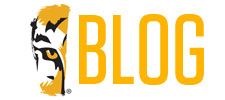No matter what is happening on the outside, your financial future is all about the basics: reduce spending, save more and know that time is on your side. If your financial house is in order, you’ll be in better shape five months AND five years from now, regardless of how things seem in the short term.
When it comes to spending power, inflation means that things cost more and that your money becomes less valuable. When a period of high inflation hits — like right now — you may want to consider changing up the way you handle your finances to help protect the value of your cash.
And deposit rates are rising! Passive savings accounts are perfect for people who don’t want to take any market or investment risks with their money and save it for a future date. There are several ways to build up your money, and most savings accounts have easy access or are for a fixed term. Find out which account is right for you:
Individual Retirement Account (IRA)
An IRA works similar to a 401k in that you are investing money and letting that money grow until retirement. These earnings are tax-deferred until withdrawals begin at age 59 1/2 or later. An early withdrawal will result in a penalty.
Roth IRAs vs. Traditional IRAs
- A Traditional IRA allows you to save for retirement with tax-deferred earnings and the possibility of tax-deductible contributions. Years later, when you withdraw money from your IRA during retirement, the amount of your withdrawal is counted as taxable income. Once you reach age 70 1/2, however, you must remove a minimum amount from this IRA each year.
- A Roth IRA is the other way around: With a Roth IRA, you contribute “after tax” money so you don’t get a tax break up front. However, the money in the Roth IRA grows tax deferred and the earnings could potentially be withdrawn tax free after age 59 ½. Like a traditional IRA, your investment earnings from a Roth IRA aren’t taxed while your money grows, but unlike a traditional IRA, you’ll pay no taxes on your investment earnings at all if you’ve had your Roth IRA for at least five years. Unfortunately, not everyone qualifies for a Roth IRA like if you are single, making over $112,000.
Certificates of Deposits (CDs)
CDs are a time deposit that grows interest over a locked term ranging from 6-60 months. There is a $500 minimum opening deposit, and while it is possible to withdraw funds early, usually a penalty will incur. They generally have more return than a Money Market, but the money is tied up in the term.
Money Markets
Money Market accounts are like a checking account with limited withdrawals. These liquid assets earn interest daily on tiered balances with a $2,500 minimum. Unlike CDs, this account is more flexible and allows you to withdraw up to three times a month without penalty which makes them great for emergency funds.
Health savings accounts (HSA)
A health savings account is a handy way to save for medical expenses and reduce your taxable income. But not everyone can — or should — sign up for the kind of health insurance plan required to open an HSA. Learn more about qualifications.
But don’t let threats of recessions and inflation scare you into snap financial decisions. Talk to your financial advisor about your options. If you are interested in setting some money aside for the future or have any questions, check out our deposit rates and talk to Member Services.
*The minimum balances mentioned in this post are for Tigers Community Credit Union accounts.




